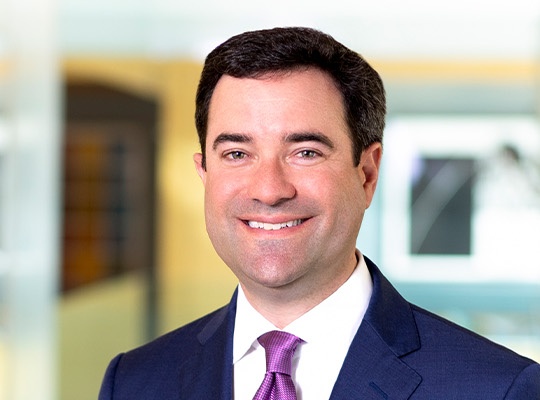Recent Delaware Case Makes First Finding of "Material Adverse Effect": Key Takeaways
The recent decision of the Delaware Court of Chancery in Akorn, Inc. v. Fresenius Kabi AG et. al is the first time a Delaware court has found a material adverse effect in the M&A context, and reinforces current Delaware law giving maximum effect to the principle of freedom of contract and the high bar a buyer must clear in order to successfully claim a “material adverse effect” (or MAE). As a result of determining there had been an MAE, the Court of Chancery found that the buyer was permitted to terminate the merger agreement. The opinion provides a detailed view of how Delaware courts parse and interpret termination provisions, closing conditions and related provisions. Both buyers and sellers should take care that these provisions are carefully drafted, and ensure that they capture the intent of the parties and allocate risks appropriately according to the client’s concerns and potential risks uncovered in due diligence. Although MAE termination rights often get the most attention during negotiations, it is just as important to focus on other remedies that might be more readily exercisable to address issues that arise following signing.
Highlights
- The Akorn case represents the first time a Delaware court has found a material adverse effect (or MAE) in the M&A context, but MAE remains a high bar under Delaware law.
- An MAE, as customarily defined in definitive transaction agreements, must constitute a significant and prolonged detrimental condition and will be found rarely.
- Buyers should be wary of being confident that an MAE has occurred except in the most extreme circumstances, and should be aware of other potential remedies under a definitive transaction agreement, including for breaches of representations and warranties and pre-closing covenants.
- There is no substitute for thorough due diligence, and the knowledge, reliance and “sandbagging” clauses of a transaction agreement are often underappreciated, but critical, components of a negotiation.
The Case
Akorn, a specialty generic pharmaceuticals company, and Fresenius, a German pharmaceutical conglomerate, entered into a definitive merger agreement on April 24, 2017 (the “Merger Agreement”) pursuant to which Fresenius would acquire Akorn through a merger of it with and into a wholly-owned subsidiary of Fresenius. Shortly after execution of the Merger Agreement, it became apparent that Akorn’s business performance was declining dramatically, primarily due to increased product competition and the loss of a key customer contract. Akorn’s performance continued to decline markedly into the fourth quarter of 2017. In addition, Fresenius received two letters from whistleblowers in the fourth quarter of 2017 alleging material failings and deficiencies in Akorn’s product development and quality compliance programs, which functions are critical in maintaining compliance with the FDA regulations to which Akorn was subject. Although Fresenius had identified compliance issues in its pre-signing due diligence efforts, it was not previously aware of the specific issues identified in the letters.
Lengthy investigations into the allegations in the letters followed, with additional law firms and consultants brought in by Fresenius and Akorn. Importantly, after the discovery of these issues, Akorn allegedly misled both Fresenius and the FDA with respect to its compliance issues and remediation efforts, further complicating Akorn’s regulatory stance and straining the relationship between Akorn and Fresenius. Despite the myriad adverse changes to Akorn’s financial profile and heightened regulatory compliance concerns, as well as the strained relationship between Akorn and Fresenius, Fresenius continued to attempt to work through these issues in order to close the transaction, while assessing what rights and remedies it had under the Merger Agreement.
By April 2018, Akorn’s financial outlook cratered. Based on the updated management case devised by Fresenius’s management at that time, Akorn’s projected EBIT for 2018 fell from US$239 million to negative US$313 million. In spite of these numbers and although Fresenius believed it then had the right to terminate the Merger Agreement, Fresenius indicated that it was willing to continue to try to finalize its investigation and salvage the deal by offering to extend the outside date in the Merger Agreement from April 24, 2018 to July 24, 2018, an offer Akorn declined.
On April 22, 2018, Fresenius terminated the Merger Agreement, claiming, among other things, that (i) an MAE occurred, and the closing condition that no MAE has occurred could not be satisfied, (ii) Akorn’s regulatory compliance issues resulted in Akorn’s representations and warranties in the Merger Agreement being untrue so as to result in an MAE, thus allowing Fresenius to terminate the Merger Agreement, and (iii) Akorn had materially breached its covenant to use commercially reasonable efforts to operate its business in the ordinary course after signing the Merger, thus providing Fresenius additional grounds to terminate the Merger Agreement.
Proving an MAE Remains an Extremely Difficult Task under Delaware Law
The Court of Chancery found that the “sudden and sustained” deterioration of Akorn’s business performance after signing the Merger Agreement constituted an MAE as defined in the Merger Agreement, based on customary language from the definition that an MAE constitutes “‘any effect, change, event or occurrence that, individually or in the aggregate . . . (ii) has a material adverse effect on the business, results of operations or financial condition of’” Akorn and its subsidiaries, taken as a whole. Although the end result of the Akorn decision is different than in Hexion Specialty Chems., Inc. v. Huntsman Corp. and In re IBP, Inc. S’holders Litig., in which no MAE was found, all three cases are best read together to stand for the proposition that an MAE is an extreme case under Delaware law.
Akorn attempted to argue that its financial performance troubles were the result of “industry headwinds” and not due to individual performance factors, thus fitting within a customary exception to the MAE definition (and which was present in this MAE definition) stating that risks “generally affecting . . . the industry in which” Akorn and its subsidiaries operate cannot constitute an MAE.
Vice Chancellor Laster rejected this argument, noting that Akorn significantly underperformed its competitors during comparable quarters over the last two fiscal years, suggesting that Akorn’s troubles were its own, and were longstanding. Vice Chancellor Laster went to great lengths to re-emphasize the law in Delaware: namely that an MAE, as customarily defined in definitive transaction agreements, must constitute a significant and prolonged detrimental condition and will be found rarely. Importantly, the Vice Chancellor made clear that an MAE closing condition or termination right will not be considered a remedy to cure a disappointed acquirer’s “buyer’s remorse.”
Although Vice Chancellor Laster did note that decreases in profits or earnings in the 40% - 50% or higher range would likely constitute an MAE, buyers hoping for specific guidance regarding when an MAE has occurred will be disappointed. Given the continued uncertainty in assessing whether an MAE has occurred, as a practical matter, an MAE is most likely to be invoked as leverage for a buyer to bring the seller to the table to re-negotiate. We would be surprised if this case results in increased litigation with respect to MAEs, and buyers should be wary of being confident that an MAE has occurred except in the most extreme circumstances.
Although not frequently found in transaction agreements, buyers should also consider introducing objective standards into MAE definitions in order to minimize the risk for potential disputes. These standards could be structured around a performance metric for the business (e.g. a specified percentage change in earnings) or known risks identified in diligence (such as, in the Akorn decision, regulatory non-compliance).
Consider Other Remedies in Addition to the MAE
Given the inherent rarity of an MAE, a buyer should not be confident that it will be successful on the merits of litigation when claiming that an MAE has occurred, and thus should be aware of alternative remedies it may have under the definitive transaction agreement in the event of adverse changes in the target’s business following signing.
In the Akorn case, Fresenius claimed, and the Delaware Court of Chancery found, that Akorn was in material breach of the interim operating covenants in the Merger Agreement; specifically, the requirement that Akorn use its commercially reasonable efforts to operate its business in the ordinary course between signing and closing (primarily due to its alleged misleading of the FDA). Fresenius thus had an independent avenue for terminating the Merger Agreement, and the bar for exercising this remedy (i.e., an uncured “material” breach) is a much lower threshold than the high bar of an MAE.
The fact that Vice Chancellor Laster spent significantly fewer pages on this analysis, as compared to the MAE analysis, is itself, in our view, an indication that this breach, and the associated remedy, may be more readily accessible to a buyer than asserting an MAE. Sellers should be aware of this standard when negotiating their covenants and ensure that compliance is fully within their control or that adequate exceptions and cure periods are available.
The Importance of Conducting Thorough and Thoughtful Due Diligence
One of Akorn’s key defenses was that Fresenius could not claim an MAE based on any risks that Fresenius (i) learned about during its due diligence or (ii) was generally on notice about due to its knowledge of Akorn’s industry but did not investigate thoroughly. Noting Delaware’s strong policy in favor of freedom of contract, Vice Chancellor Laster rejected this argument on the basis that a court’s role is not to rewrite a contract entered into between sophisticated market participants, thus allocating risk after the fact in a manner not specifically agreed to by the parties. He noted that if Akorn wanted to exclude matters likely or anticipated to occur following signing, or matters uncovered during due diligence, it should have bargained for those exclusions in the Merger Agreement. This finding reinforces that the knowledge, reliance and “sandbagging” clauses of a merger agreement are often underappreciated, but critical, components of a negotiation.
The Vice Chancellor notes on many occasions the misdeeds and misleading actions of certain members of Akorn’s management responsible for its regulatory compliance functions, as well as alleged directives within Akorn to not raise potential regulatory compliance issues for fear of jeopardizing the deal with Fresenius. Many of these actions had occurred prior to signing the Merger Agreement and could have been discovered in due diligence. If Fresenius had uncovered the number and severity of deficiencies in Akorn’s regulatory compliance functions prior to signing, Fresenius very likely would not have entered into the Merger Agreement or would have negotiated for more favorable terms. This would have been preferable in many respects, and serves as a strong reminder that buyers are better off discovering issues in advance of signing, when they still have leverage or the ability to walk away from the deal, than relying on remedies that may be difficult to enforce.
Conclusion
The Akorn decision, while not creating new law, does provide a useful guide as to how Delaware courts will give maximum effect to the terms of negotiated contracts between sophisticated parties, and serves as a warning to buyers: Delaware courts will not find an MAE except in extreme circumstances.




